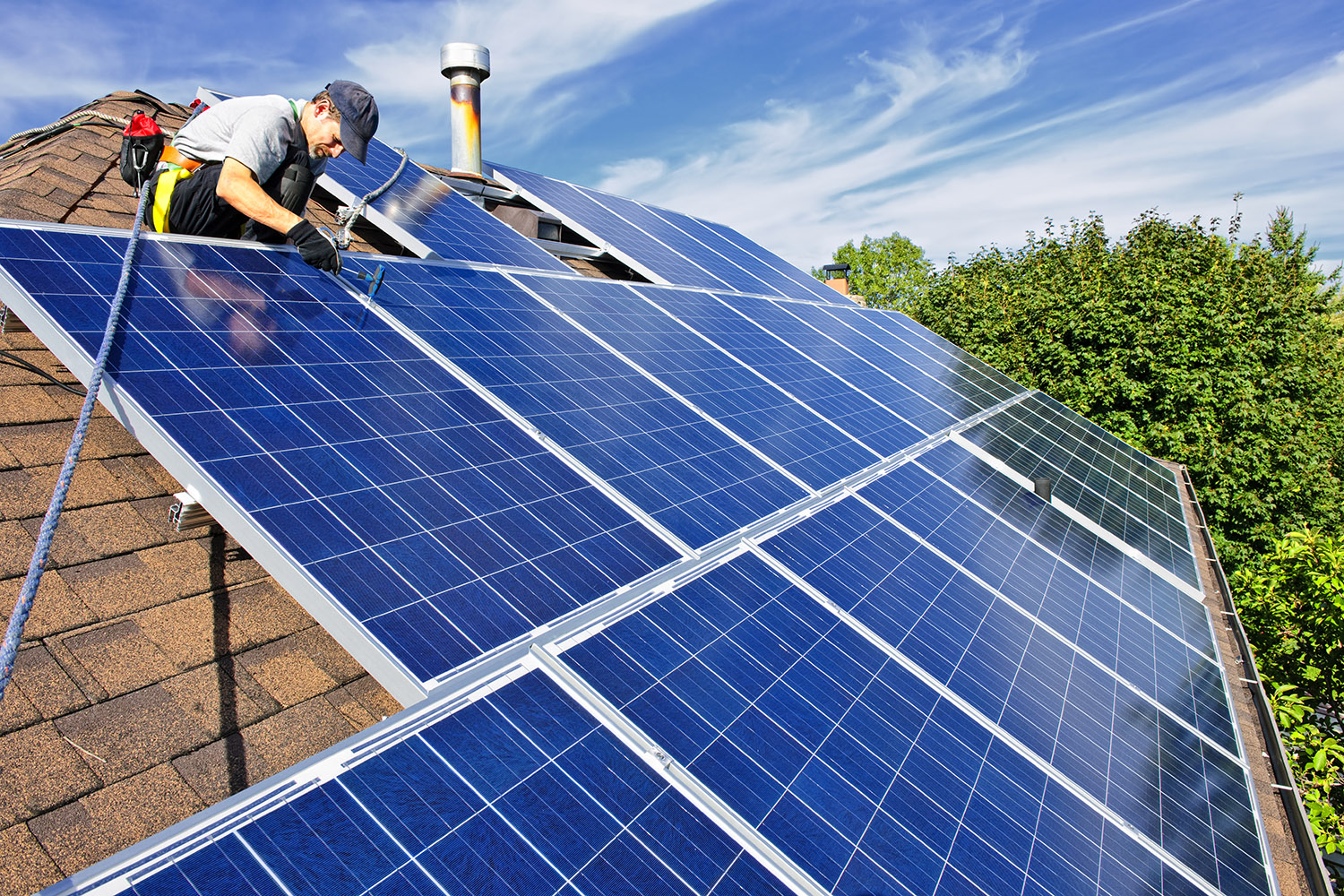Why Solar Power Installation Is the Smart Choice for Your Home or Organization
The choice to mount solar power in your home or service is progressively recognized as a critical investment, driven by a combination of financial incentives and ecological considerations. Embracing solar energy not only boosts your building's worth but additionally contributes to a more lasting future.
Financial Savings and Incentives
Spending in solar power installments can substantially decrease power expenses for homeowners and services alike. By utilizing power from the sun, properties can produce their own electrical energy, resulting in significant savings on regular monthly energy expenses. In several cases, these financial savings can offset the preliminary installment costs within a couple of years, providing an appealing return on financial investment.
Furthermore, countless financial rewards exist to urge solar adoption. Federal tax credits, such as the Investment Tax Obligation Credit Rating (ITC), enable home owners and businesses to deduct a considerable percent of solar installment costs from their federal taxes. solar photovoltaic. Numerous states and city governments also provide refunds, gives, or performance-based motivations, better boosting the affordability of solar systems
Financing options, including solar finances and leases, are readily available to reduce the ahead of time financial burden. Through these arrangements, homeowner can spread the cost of installation gradually, frequently paying less than their previous electrical power costs.
Additionally, the increasing worth of residential or commercial properties geared up with solar systems makes them much more attractive in the realty market. Overall, the economic advantages of solar energy setups are compelling, making them a wise financial investment for the future.
Ecological Effect and Sustainability

Moreover, solar installments can lower reliance on non-renewable resources, such as coal and gas, which can result in environment devastation and air pollution via removal and combustion processes. By transitioning to solar energy, property owners and services proactively join lowering their carbon impact, cultivating a much healthier ecosystem.
Additionally, the manufacturing of solar panels has become more efficient and less harmful to the environment over the years. Many manufacturers are now devoted to utilizing lasting methods, including recycling products and decreasing waste.
Power Freedom and Security
Accomplishing energy independence via solar energy setups equips individuals and communities to lower their dependence on imported nonrenewable fuel sources. This shift not only boosts neighborhood energy safety and security but additionally supports energy prices with time. With solar power, property owners and companies can create their very own electrical power, mitigating the influence of changing energy costs driven by worldwide markets.
Solar installations provide a lasting alternative that aids buffer versus geopolitical stress and supply chain disruptions linked with fossil fuel dependence. By taking advantage of sunlight, areas can cultivate a self-dependent energy structure, guaranteeing regular accessibility to power regardless of outside factors. This freedom fosters financial resilience, as power production ends up being local, keeping even more funds within the area.
Additionally, the change to solar power adds to grid find this stability. Dispersed planetary systems can minimize stress and anxiety on standard power grids, lowering the possibility of power outages during peak demand durations. As even more entities adopt solar innovation, the cumulative shift towards sustainable power sources magnifies the general security of the power landscape. Ultimately, accepting solar energy not only promotes private and area empowerment but also supports nationwide objectives for a lasting and dependable power future.

Technological Advancements in Solar
Improvements in solar modern technology are transforming the method power is harnessed and used, additionally sustaining the power independence accomplished with solar setups. Technologies in photovoltaic (PV) cells, particularly the advancement of bifacial panels, permit raised power capture by soaking up sunlight from both sides. This technology enhances efficiency and optimizes power result, making solar installments extra reliable than ever before.
In addition, improvements in power storage space solutions, such as lithium-ion batteries, offer homeowners and businesses the ability to store excess power generated throughout optimal sunshine hours. This capacity makes certain a stable power supply during durations of low sunshine, enhancing power integrity and lowering reliance on the grid.
Smart inverters have also emerged as an important component of contemporary solar systems, supplying real-time tracking and optimization of energy use (solar photovoltaic). These systems enable users to manage their power consumption intelligently, leading to reduced expenses and enhanced efficiency